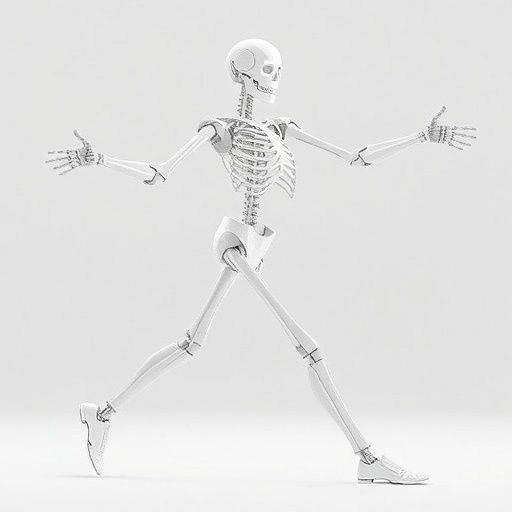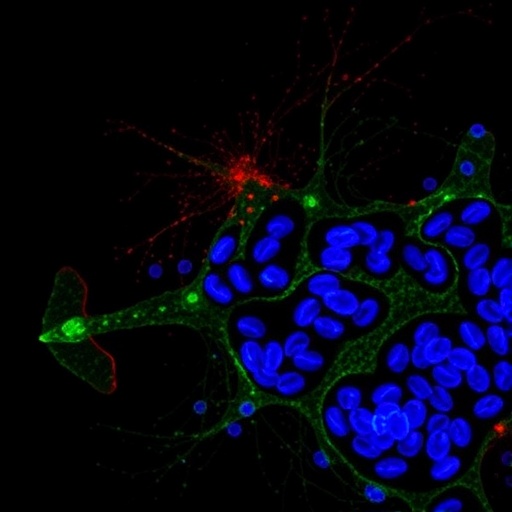
In a world where the healthcare landscape is continuously evolving, the phenomenon of presenteeism among nurses has emerged as a significant concern, impacting both the quality of care provided to patients and the overall well-being of healthcare professionals. A recent study explores the intricate relationship between presenteeism, moral courage, and moral disengagement among nurses, shedding light on these critical issues in a comprehensive and methodologically sound manner. Conducted using cross-sectional structural equation modeling, the research aims to unravel the complexities inherent in the everyday realities faced by nursing professionals.
Presenteeism, the act of attending work while unwell, poses a multitude of challenges within the healthcare system. For nurses, the implications are profound; they not only bear the burden of their health issues but also grapple with the responsibility of providing optimal care to patients. Studies have shown that presenteeism can lead to decreased productivity, increased risk of errors, and negative outcomes for patients. Understanding the factors that contribute to this phenomenon is essential for implementing strategies that promote healthier work environments and better patient care.
Central to the study’s findings is the concept of moral courage, defined as the ability to make ethical decisions in the face of adversity. Nurses often find themselves in morally complex situations where they must navigate between their ethical obligations to patients and the pressures of the healthcare environment. The research highlights that when nurses exhibit moral courage, they are more likely to resist the urge to work while unwell, thus benefiting both their own health and the safety of their patients. This underscores the importance of fostering an ethical culture within healthcare institutions that encourages nurses to speak up and make decisions aligned with their moral values.
Conversely, the study also delves into the concept of moral disengagement, a psychological mechanism that can excuse unethical behavior and diminish personal responsibility. In the nursing profession, moral disengagement may manifest when nurses convince themselves that their presenteeism is acceptable under certain circumstances, such as staffing shortages or workplace pressures. This can lead to a dangerous cycle where the prioritization of work over personal health becomes normalized, subsequently impacting the overall quality of care provided.
The research employs robust structural equation modeling techniques to analyze the relationships between presenteeism, moral courage, and moral disengagement. This analytical approach allows for a nuanced understanding of how these variables interact with each other, providing insights that can inform policy and practice in nursing. By identifying the predictors of presenteeism, healthcare administrators can develop targeted interventions to address the root causes, thus promoting healthier work environments for nursing staff.
Furthermore, the implications of this study extend beyond the immediate context of nursing. The findings contribute to the broader discussion surrounding healthcare worker well-being and patient safety, emphasizing the need for systemic changes within healthcare organizations. Such changes could include the implementation of wellness programs, flexible work arrangements, and supportive workplace cultures that value both employee health and patient care.
In addition, the study offers valuable insights for nursing education programs. Providing future nurses with the tools to cultivate moral courage and recognize the dangers of moral disengagement is essential for the development of resilient healthcare professionals who can withstand the challenges of the profession. By integrating ethics and professional development into nursing curricula, educators can equip students to handle the complexities of their future roles more effectively.
Moreover, the research highlights the role of leadership in shaping the workplace environment for nurses. Nurse leaders and managers play a pivotal role in creating a culture that prioritizes the health and well-being of their staff. By modeling behaviors that reflect moral courage and encouraging open discussions about presenteeism, leaders can instill a sense of responsibility and ethical awareness within their teams. This leadership approach not only benefits nursing staff but also enhances patient outcomes by fostering an environment where safe and ethical care is the norm.
As the healthcare landscape continues to change, issues such as presenteeism, moral courage, and moral disengagement will remain at the forefront of nursing discourse. The ongoing challenges posed by a high-stress environment, coupled with the emotional demands of caregiving, necessitate continued research and dialogue within the field. By understanding and addressing these issues, stakeholders can work collaboratively to cultivate healthier workplaces for nurses, ultimately improving patient care quality and outcomes.
The findings of this study serve as a critical reminder of the interconnectedness of nurse well-being and patient safety. As presenteeism persists as a pressing challenge, the need for ongoing support and resources for nurses cannot be overstated. By acknowledging the multifaceted nature of these issues, healthcare organizations can take proactive steps to create nurturing work environments where nurses feel empowered to prioritize their health alongside their professional responsibilities.
In conclusion, the exploration of presenteeism, moral courage, and moral disengagement among nurses is a vital contribution to the ongoing discourse on healthcare workforce challenges. The findings underscore the necessity of fostering a culture that promotes ethical behavior and supports nurses in making health-conscious decisions. Embracing these insights may be key to not only sustaining the nursing workforce but also ensuring the highest standards of patient care in an increasingly demanding healthcare environment.
Subject of Research: The relationship between presenteeism, moral courage, and moral disengagement among nurses
Article Title: Presenteeism, moral courage, and moral disengagement among nurses: a cross-sectional structural equation modeling study
Article References: Kazemi, S., Gholizadeh, M., Rajaee, M. et al. Presenteeism, moral courage, and moral disengagement among nurses: a cross-sectional structural equation modeling study. BMC Nurs 24, 1126 (2025). https://doi.org/10.1186/s12912-025-03779-2
Image Credits: AI Generated
DOI: 10.1186/s12912-025-03779-2
Keywords: Presenteeism, moral courage, moral disengagement, nurses, healthcare workforce, patient safety, ethical decision-making
Tags: complexities of nursing responsibilitiescross-sectional studies in healthcareethical decision-making in nursingevolving healthcare landscapeHealthcare professional well-beingimpact of disengagement on nursesimplications of presenteeism on patient caremoral courage in nursingmoral disengagement in healthcarenurses presenteeism challengesnursing productivity and errorsstrategies for healthier work environments




